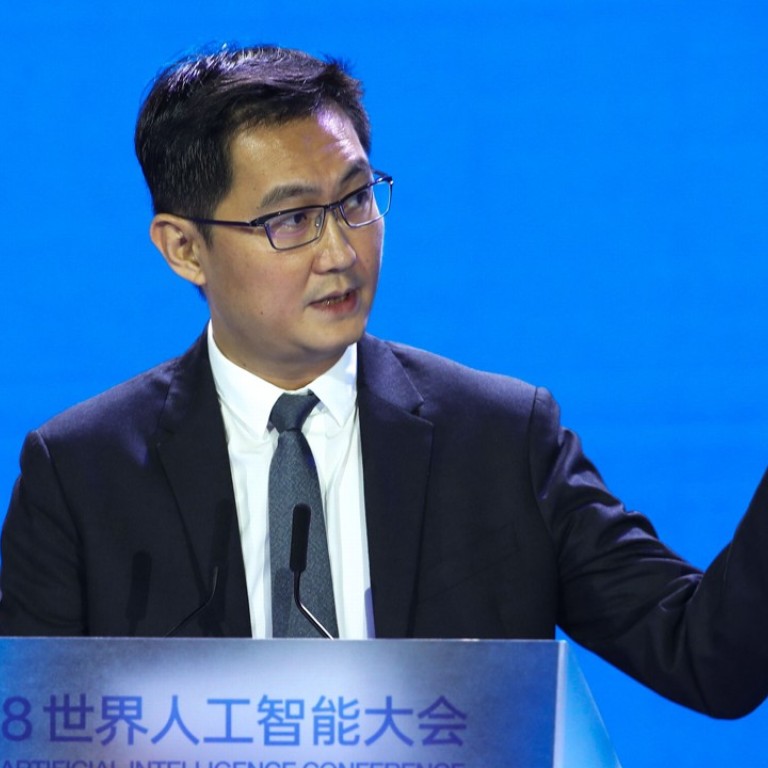
Did Pony Ma just crowdsource Tencent's future R&D direction?
- Ma’s questions come at a turning point for Tencent, which recently announced it was reshuffling its business to focus more on the industrial internet
Tencent Holdings’ low profile founder Pony Ma Huateng has posted questions on Zhihu, China’s answer to Quora, asking about future internet development – perhaps looking for inspiration after the video games giant recently pivoted towards the industrial internet and away from a reliance on the consumer market.
The billionaire chairman and chief executive of Tencent, which has lost US$220 billion in market value after China cracked down on gaming this year, publicly asked what kind of basic sciences will impact the internet industry in the coming decade and what changes will result from the combination and innovation of the industrial and consumer internet.
The responses range from brain-computer interface and new materials to quantum computing and data storage.
The questions, posted on Zhihu late Tuesday night, were viewed 1.4 million times and received 830 answers as of 4pm on Wednesday. Ma has not been a regular on Zhihu and the previous time he posted, six years ago, he asked at what stage of human development the internet was at and what upgrades could be expected.
The sharper focus on cloud services would appear to reinforce Tencent’s role as one of China’s designated artificial intelligence (AI) champions, a list which also includes Alibaba Group Holding, Baidu, iFlyTek and facial recognition start-up SenseTime. Tencent’s move also comes at a time when Chinese President Xi Jinping is pushing the country to further develop its manufacturing industry and technology to become a “strong” country amid an escalating trade and technology battle with the US.
Another new group will combine Tencent’s social media, mobile internet and online media operations into one, indicating the need for more strategic coordination with the emergence of new competitors such as ByteDance, whose AI-driven algorithms for news and short videos have captured market share from Tencent’s own video and news platforms.
The restructuring marks a “significant strategic upgrade” for the company, which has previously focused on connecting users with consumer services in the past, Ma said in a statement. Given that “the next era of the internet is the industrial internet”, Tencent aims to “connect industries and consumers to build a more open ecosystem”.
Tencent’s last restructuring, in 2012, helped drive growth of the company’s consumer-focused internet products. Tencent currently derives about two-thirds of its revenue from video games and social media.
Alibaba is the parent company of the South China Morning Post.

